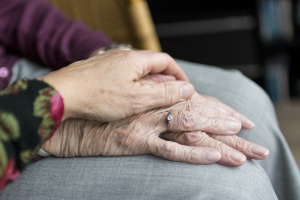
Opinion
COVID-19 has blatantly pointed out global health inequities. The stark truth stares straight into the eyes yelling “everyone is unsafe till anyone is unsafe”. It exposed the hollowness of agencies like the Global Health Security Index, which turned out to be nothing more than a false sense of security to some nations and false criticism of others, especially low-income countries. The tiny contagion has proved the equal vulnerability of all.
At the beginning of the pandemic, the world witnessed unprecedented global collaboration and cooperation resulting in sharing of genome sequencing, the development of diagnostic tests and kits and then the quickest vaccine development in history. All this was possible because of the multilateral approach. However, this multilateralism was fear-driven rather than instinctive and hence lasted shortly. Once the vaccines were ready the self-centric nationalism kicked in pushing multilateralism to the back seat.
In the beginning, the self-centric approach affected the supplies of protective equipment, PPE kits, sanitation supplies, diagnostic materials and lately the crucial raw materials required in the process of vaccine development. The suppressed desire to capture the lion’s share of the booty became utterly manifest once the harvest, the vaccines, in this case, were ready. And the result was inequitable rollout and distribution of COVID-19 vaccines across the world, with little share left for low and middle-income countries. The vaccination difference between the low-income and high-income countries even today stands out more than ten times.
The World Health Organization (WHO) kept yelling but no one bothered. Some politicians like Indian Prime Minister Narendra Modi, who dared to share some vaccines with friendly neighbouring nations, were meted with tough opposition from the rival political factions. There is a Hindi proverb Ek anaar, sau bimaar! Literally meaning: Pomegranate one, and a hundred sick! and figuratively meaning: Supplies limited, but demands unlimited.
When survival is at stake emotions carry little meaning. The world is going to witness the repeat if similar conditions prevail again. But we need to learn from what happened and build resilience for the future.
The key question now should be to prevent a repeat of such a situation in future. And it is not going to come through just the governments working together. The world needs to develop an ecosystem using multi-stakeholder partnerships with major public-private investment initiatives. Enhanced coordination with smooth flow arrangements between financial institutions such as the World Bank, the International Monetary Fund and local/regional development banks need to be charted out with a binding framework. International organisations like WHO need to be given more might in implementation. A pandemic watchdog may be considered with powers to integrate national, regional and global surveillance capabilities, and share the information and prevail during controversies. The role of civil societies and the private sector can’t be undermined, they need to be incorporated into the decision-making.
Situations might seem difficult but not impossible. After all the United Nations also came into existence after huge catastrophes threatened the existence of Mankind.
*Dr. Satish K Gupta is an MD in Medicines, a Visiting Senior Consultant Physician and Internist at Max Super Speciality Hospital, and a Clinical Assistant Professor at GS Medical College, Chaudhary Charan Singh University, Meerut. He is the author of Journey of COVID in India: A Doctor’s Perspective.


 By
By

